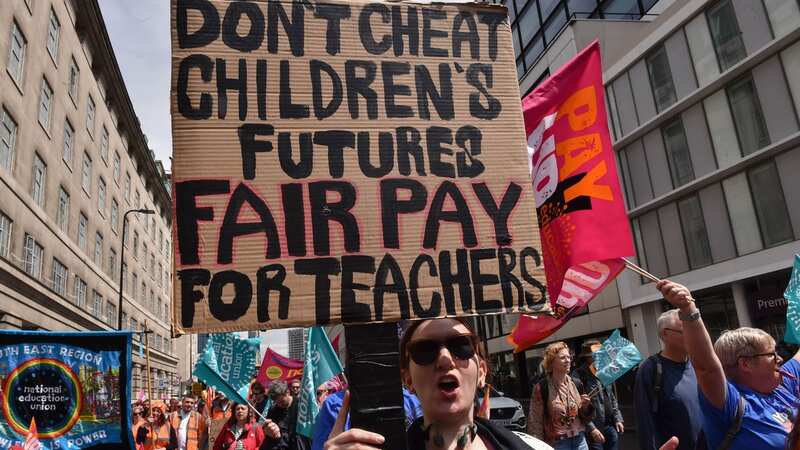Tory plan to curb teachers' strikes 'hostile act' and 'attack on basic freedoms'

Tory plans to curb teachers’ strikes were branded an “overtly hostile act” and an “attack on the basic democratic freedoms” today.
The Department for Education announced it would try to introduce minimum service levels in schools and colleges. The move follows a wave of classroom walkouts as staff battled for better pay. It would mean certain levels of teaching would have to continue in classrooms even while other teachers were on picket lines.
The Strikes (Minimum Service Levels) Act was initially only planned to apply to rail and 999 workers. But the DfE claimed including teachers “will strengthen protections for children, young people and parents during strike action in education”.
Education Secretary Gillian Keegan has written to union leaders offering talks about a voluntary deal. But she insisted that if an agreement could not be struck, the Government would plough on regardless.
NAHT union general secretary Paul Whiteman said: “This is nothing short of an overtly hostile act from the government and an attack on the basic democratic freedoms of school leaders and teachers. At a time when the Government should be building bridges with the profession, the timing of this couldn’t be worse.
 Teachers, civil servants and train drivers walk out in biggest strike in decade
Teachers, civil servants and train drivers walk out in biggest strike in decade
“Not only are the Government’s proposals for minimum service levels fundamentally undemocratic, they are utterly unworkable in a school setting. There are a range of very basic questions that the Government seem to have not even considered, let alone are able to begin to answer. The contempt that this Government has shown for workers and their representatives is astounding.”
The DfE said today's announcement “follows the disruption during industrial action last academic year, which resulted in over 10 days of action in schools, leading to 25 million school days that were lost cumulatively, impacting children and families across the country”. It added that in her letter Ms Keegan “is clear that should a voluntary agreement not be reached the Government is committed to using powers granted through the Strikes (Minimum Service Levels) Act that was introduced earlier this year”.
The Education Secretary, who has been heavily criticised for her response to the crumbly concrete in schools crisis, said: “Last year’s school strikes were some of the most disruptive on record for children, and their parents. We cannot afford a repeat of that disruption - particularly as schools and teachers continue to work so hard to help children recover from the pandemic. I am asking the teaching unions to engage with us and agree to put children and young people’s education first - and above and beyond any dispute.”
NASUWT leader Patrick Roach said: “The Education Secretary’s announcement is a blatant attempt to distract from the crisis engulfing our schools and colleges on this Government’s watch. At a time of a worsening teacher recruitment and retention crisis, when school buildings are collapsing and riddled with asbestos, and when pupils with special education needs are unable to access the specialist support they need, the Government is continuing to fail our children and young people.”
National Education Union general secretary Daniel Kebede backed “the fundamental right to strike” and said the Government “has no democratic mandate to implement such an attack on our democratic freedoms”. He added: “The Government would get further in minimising industrial action and disruption to schools if it engaged with unions on the issues that give rise to ballots. Pay, workload and the recruitment and retention crisis will remain lightning rod issues for our members until the Education Secretary brings forward positive and substantial change.”
Read more similar news:
Comments:
comments powered by Disqus

































